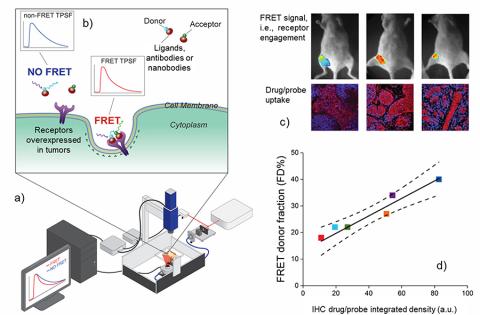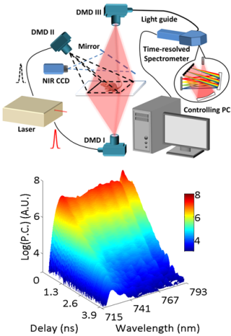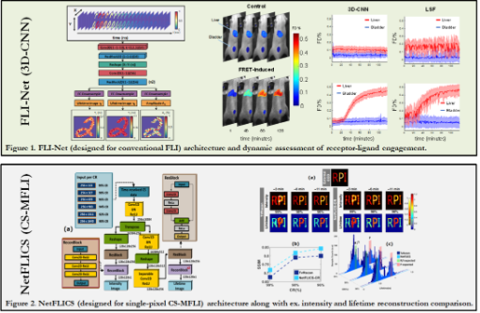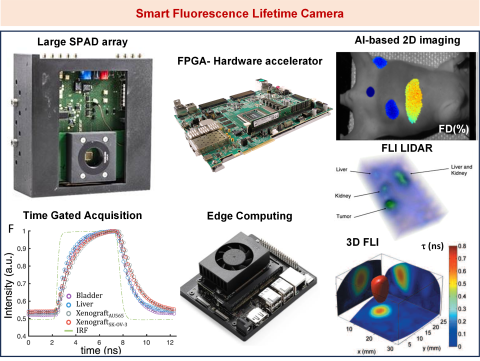CeMSIM researchers are developing unique imaging modalities via the joint design of imaging hardware and image formation algorithms to provide new solutions with unprecedented capabilities for a wide array of biomedical applications. Researchers are active in integrating innovative imaging systems for precision medicine, pioneering quantum imaging and detection methodologies for biomedical applications, developing dedicated AI-based image formation/processing pipelines/diagnostic models and associated novel methodologies at the interface of AI and simulation-based inference.
Lead: Dr. Xavier Intes | Co-lead: Dr. Moussa Ngom




